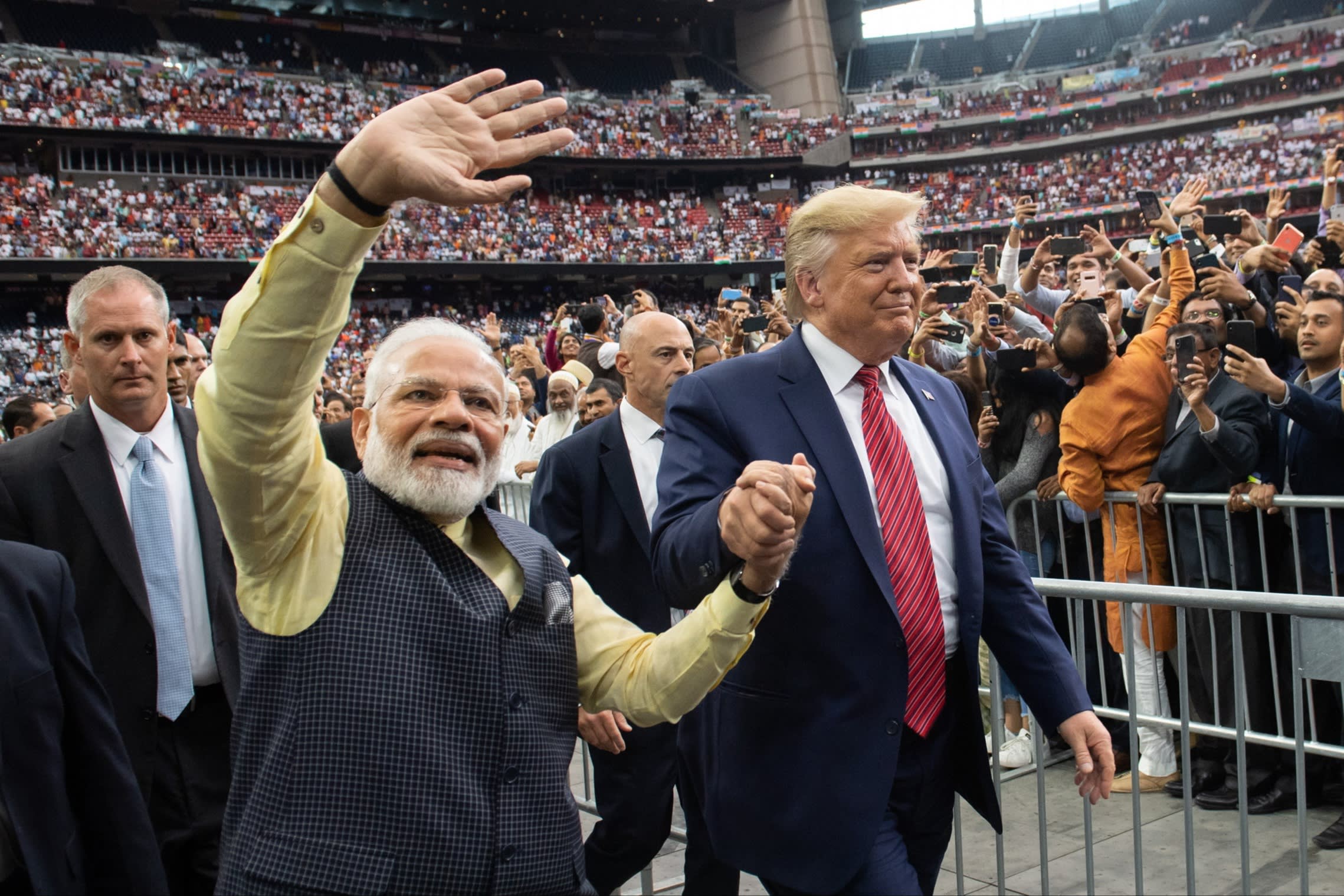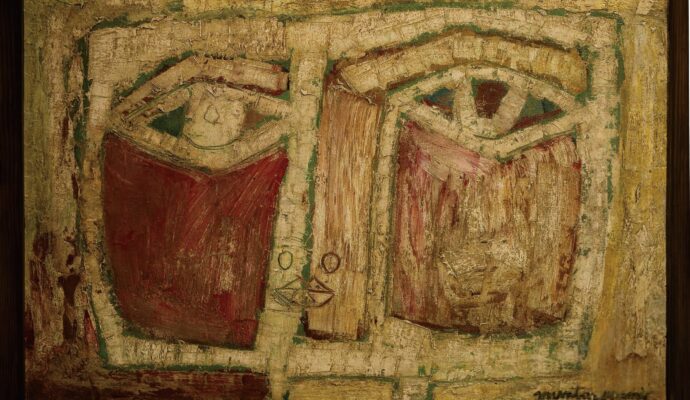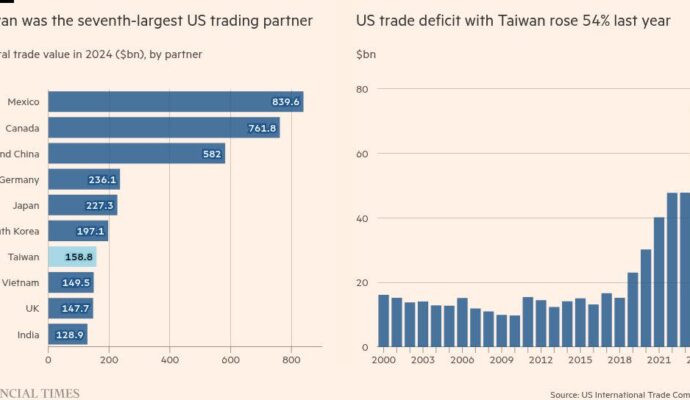In February US President Donald Trump hosted Narendra Modi in the Oval Office, embracing the Indian prime minister and hailing him as “a great friend”.
Just six months later, relations between the leaders of the world’s two biggest democracies have deteriorated, culminating in Trump imposing a 25 per cent tariff on Indian goods this week and unleashing a blunt denunciation of the world’s fifth-largest economy.
In a series of combative late-night Truth Social posts, Trump criticised India’s trade barriers as “strenuous and obnoxious” and placed the world’s fastest-growing large economies alongside an American adversary, writing that both India and Russia were saddled with “dead economies”.
The US president’s invective startled Indian officials, leaving analysts struggling to understand how relations between the leaders — who until recently had enjoyed strong personal chemistry — had fallen so far, so quickly.
“Trump has obviously made it a very personal thing against Modi,” said Indrani Bagchi, chief executive of the Ananta Centre, a think-tank. “I don’t think it has much to do with policy anymore.”
Trump had hinted weeks ago that a trade agreement with New Delhi was imminent as India sought to stave off “liberation day” tariffs of 26 per cent.
But the levies that came down on Wednesday — ahead of Trump’s August 1 deadline on other US trading partners — was just one percentage point lower. The US president added that there would be an unspecified penalty on India for buying Russian oil.
“Indians are acutely sensitive to perceived or real slights and this is not the way India has dealt with any head of state,” said C Raja Mohan, a visiting professor at the Institute of South Asian Studies in Singapore. “The indignities go beyond any relationship, and the language, the style, the abruptness is not the way people deal with each other.”
Modi’s government said it was examining the implications of Trump’s move and officials told the Financial Times they still expect a US delegation to return to India for trade talks later this month. “We will take all necessary steps to secure and advance our national interest,” Piyush Goyal, commerce minister, said in terse remarks to parliament.
US officials have made clear that Washington’s pique with India largely centres on its buying of Russian oil — India’s largest supply source.
Marco Rubio, US secretary of state, called the oil purchases a “point of irritation” in remarks to Fox News on Thursday, adding that “India . . . in essence is helping to fund [Russia’s] war effort” in Ukraine.
At stake, analysts said, was more than the Trump-Modi relationship or even India’s economic ties with its biggest trading partner. They added that Trump also appeared to be drawing closer to India’s arch-rival Pakistan just weeks after the south Asian adversaries fought a brief conflict.
“India, with greater confidence about its growing role in the world, feels less need to compromise with the United States on core political issues and has struggled to manage a wheeler-dealer in the White House,” said Christopher Clary, a non-resident fellow with the Stimson Center South Asia programme.

During the cold war the US had strained relations with India, when New Delhi had close ties with Moscow. But over the past two decades, the countries have built a relationship in defence and technology that was widely seen as one of the democratic world’s strongest answers to an expansionist China.
In February, the two countries announced plans for a new 10-year defence partnership and said they intended to negotiate the first tranche of a bilateral trade deal by autumn.
In the negotiations that followed, analysts and officials in India and the US said, the two sides reached broad agreement to cut tariffs and open markets in a swath of industries, with India insisting on protecting its politically sensitive foodgrain and dairy markets. However, the draft agreement remained unsigned by Trump after personal ties between the two leaders soured.
New Delhi was angered by Trump weighing in during and after its May conflict with Pakistan, which it launched after an attack in Indian-controlled Kashmir killed 26 civilians. India blamed Pakistan for the attack, but it denied involvement and has called for a “neutral” investigation.
Modi’s government also openly disputed Trump’s claim to have brokered a ceasefire to the fighting and that he used trade deals in order to do so.
The official Indian readout of a Trump-Modi call on June 17 said: “At no point during this entire sequence of events was there any discussion, at any level, on an India-US Trade Deal, or any proposal for a mediation by the US between India and Pakistan.”
Pakistan, by contrast, nominated Trump for the Nobel Peace Prize, citing his role in defusing the crisis.
India Business Briefing
The Indian professional’s must-read on business and policy in the world’s fastest-growing big economy. Sign up for the newsletter here
Islamabad has also offered the transactional US president a high-value Isis-K militant and as well as deals spanning cryptocurrencies, artificial intelligence, hydrocarbons and critical minerals. Asim Munir, the country’s army chief and de facto leader, was hosted for a two-hour White House lunch in June.
In nearly the same breath that Trump hit India with tariffs this week, he announced a deal with Pakistan to develop the country’s “massive oil reserves”. In remarks that seemed tailor-made to rile New Delhi, he suggested Pakistan might one day “be selling oil to India”. Pakistan also received a lighter 19 per cent tariff.
While the US objections to India’s buying of oil were not the cause of current tensions between the countries, they “will certainly create more problems with Delhi”, said Ashley Tellis, senior fellow at the Carnegie Endowment for International Peace.
“As long as Trump’s policy was coddling Putin, India’s oil purchases were not a problem,” said Tellis. “Now they’ve suddenly become one because Trump’s interest in a ceasefire has intensified.”
In the Indian domestic context, the bust-up has unfolded during a parliamentary session, and Modi’s opponents have been quick to seize on it to attack the prime minister, whose authority is rarely seriously challenged at home.
“Everybody knows that the Indian economy is a dead economy,” opposition leader Rahul Gandhi told reporters this week, responding to the US president’s remarks. “President Trump has stated a fact.”


